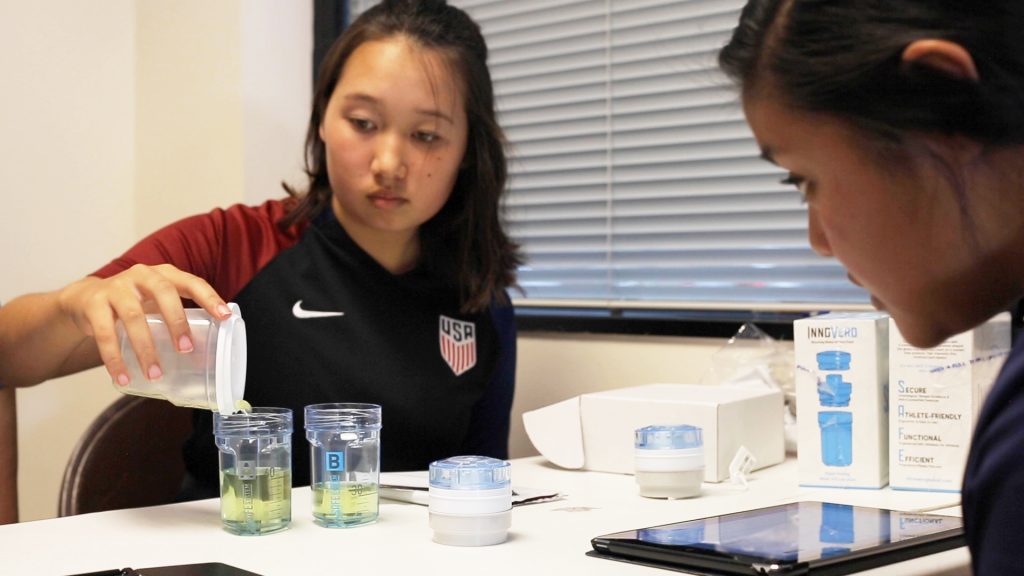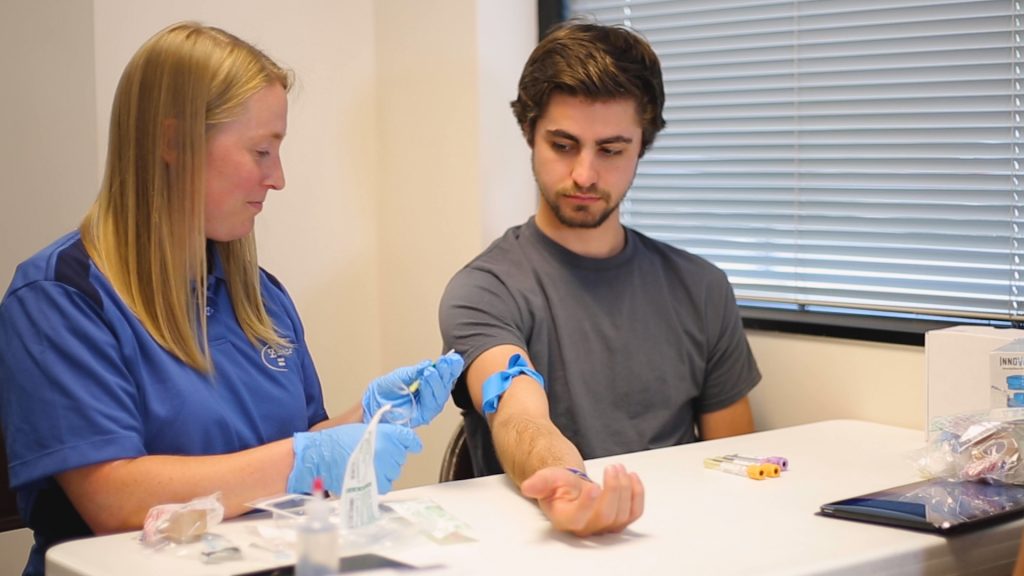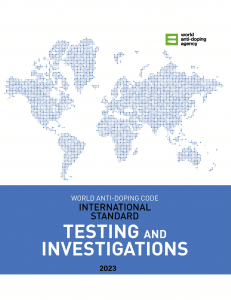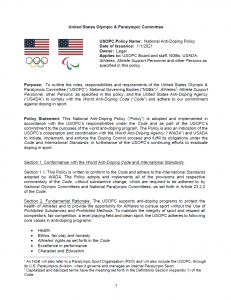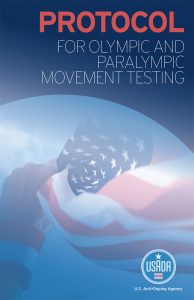Testing
Understanding the Testing Process
Testing is an important part of any effective anti-doping program and is the area that most often comes to mind when thinking about anti-doping. From test planning and collection of a urine or blood sample, through the results managements process, USADA provides a thorough program, with policies and procedures in accordance with the World Anti-Doping Code, the WADA International Standards, the United States Olympic & Paralympic Committee Anti-Doping Rules, and the USADA Protocol for Olympic and Paralympic Movement Testing.
sample collection
Sample collection is one of the most important aspects of USADA’s testing efforts.
whereabouts
Whereabouts information allows an athlete to be located for out-of-competition testing. Athletes can be tested 365 days a year at any time and any location without advance notice. Registered Test Pool (RTP) and Clean Athlete Program (CAP) athletes are required to provide Whereabouts filings to USADA and report changes based on their specific pool requirements.
THERAPEUTIC USE EXEMPTIONS
In some situations, an athlete may have an illness or condition that requires the use of substances or methods listed on the World Anti-Doping Agency’s Prohibited List. USADA may grant a Therapeutic Use Exemption (TUE) in these situations in compliance with the World Anti-Doping Agency International Standard for TUEs. The TUE application process is thorough and designed to balance the need to provide athletes access to critical medication while protecting the rights of clean athletes to complete on a level playing field.
NATIONAL & WORLD RECORD TESTING PROCESS
USADA has seen a significant increase of national and world records broken by U.S. athletes and international athletes at events hosted in the U.S. To better assist athletes who break a record and require testing to ratify a record, USADA now has the Record Hotline that allows athletes, athlete support personnel, and event organizers to contact USADA after-hours and on weekends to request testing.
Important Testing Guidance Documents
Test distribution planning
Click on the question to drop down the answer.
The United States Olympic & Paralympic Committee (USOPC), USOPC-recognized National Governing Bodies (NGBs) for sport, and the World Anti-Doping Code have authorized USADA to test, as well as adjudicate anti-doping rule violations for any athlete who:
- Is a member or a license holder of a USOPC-recognized sport NGB.
- Is participating at an event or competition sanctioned by the USOPC or a USOPC-recognized sport NGB or participating at an event or competition in the United States sanctioned by an International Olympic Committee-recognized International Federation (IF) for sport.
- Is a foreign athlete who is present in the United States.
- Has given his/her consent to testing by USADA or who has submitted a Whereabouts filing to USADA or an IF within the previous 12 months and has not given his/her NGB written notice of retirement.
- Has been named by the USOPC or an NGB to an international team or who is included in a USADA testing pool or is competing in a qualifying event to represent the USOPC or NGB in international competition.
- Is a United States athlete or foreign athlete present in the United States who is serving a period of ineligibility on account of an anti-doping rule violation and has not given prior written notice of retirement to the his/her NGB and USADA or the applicable foreign anti-doping agency or foreign sport association.
- Is being tested by USADA under authorization from the USOPC, an NGB, an IF, any National Anti-Doping Organization (NADO), the World Anti-Doping Agency (WADA), the International Olympic Committee (IOC), International Paralympic Committee (IPC), or the organizing committee of any event or competition.
When developing a test distribution plan, a plan for efficient, effective, and intelligent allocation of testing resources, USADA’s considerations are consistent with WADA’s International Standards for Testing and Investigations (ISTI). These standards, at a minimum, may include the:
- Physical demands of the sport and possible performance-enhancing effect that doping may elicit
- Available doping analysis statistics
- Available research on doping trends
- History of doping in the sport and/or discipline
- Training periods and the competition calendar
- Information received on possible doping practices
Resources aimed at the detection of doping may be specifically targeted. USADA retains the right to test any athlete at any time.
In-competition testing plans are primarily developed by coordinating with each National Governing Body (NGB) and are often in accordance with the rules of the International Federation (IF). Athletes may be selected for testing by USADA based on criteria that typically accounts for established rules set forth by each IF.
Examples of how athletes would be selected for in-competition or event testing could be:
- Placed finishers, such as the top three finishers
- Randomly selected athletes, such as 5th, 7th, 12th, 18th, 19th,etc.
USADA’s out-of-competition testing plan is designed to strategically deter and detect doping in sports with a high risk of potential doping during out-of-competition periods, while maximizing resources. Test allocation is based on specific factors in accordance with the International Standard for Testing and Investigations (ISTI). Tests are conducted, without prior notice, throughout the year, in which an athlete is not competing at a competition or event.
To maintain an effective anti-doping program, USADA retains the right to test athletes at any time and location.
USADA maintains two Whereabouts testing pools to ensure that out-of-competition testing resources are allocated as effectively as possible and that Whereabouts requirements are proportionate to each athlete’s level of testing. The two Whereabouts testing pools are explained below.
Registered Testing Pool
Athletes who have been notified that they are part of the USADA Registered Testing Pool (RTP) are responsible for directly keeping USADA informed of their Whereabouts via quarterly Whereabouts filings and ongoing updates so as to be available for out-of-competition testing.
Clean Athlete Program
Athletes who have been notified that they are part of the Clean Athlete Program (CAP) are also responsible for directly keeping USADA informed of their Whereabouts so as to be available for out-of-competition testing. CAP athletes, however, are subject to limited Whereabouts requirements as part of USADA’s strategic testing plan, which in part, is designed to make Whereabouts requirements for athletes proportional to testing.



